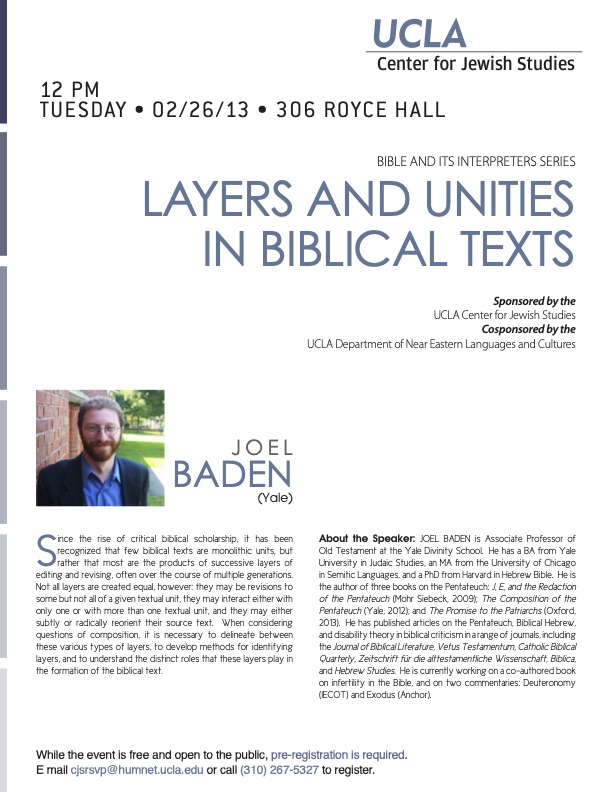
Since the rise of critical biblical scholarship, it has been recognized that few biblical texts are monolithic units, but rather that most are the products of successive layers of editing and revising, often over the course of multiple generations. Not all layers are created equal, however: they may be revisions to some but not all of a given textual unit, they may interact either with only one or with more than one textual unit, and they may either subtly or radically reorient their source text. When considering questions of composition, it is necessary to delineate between these various types of layers, to develop methods for identifying layers, and to understand the distinct roles that these layers play in the formation of the biblical text.
About the Speaker: JOEL BADEN is Associate Professor of Old Testament at the Yale Divinity School. He has a BA from Yale University in Judaic Studies, an MA from the University of Chicago in Semitic Languages, and a PhD from Harvard in Hebrew Bible. He is the author of three books on the Pentateuch: J, E, and the Redaction of the Pentateuch (Mohr Siebeck, 2009); The Composition of the Pentateuch (Yale, 2012); and The Promise to the Patriarchs (Oxford, 2013). He has published articles on the Pentateuch, Biblical Hebrew, and disability theory in biblical criticism in a range of journals, including the Journal of Biblical Literature, Vetus Testamentum, Catholic Biblical Quarterly, Zeitschrift für die alttestamentliche Wissenschaft, Biblica, and Hebrew Studies. He is currently working on a co-authored book on infertility in the Bible, and on two commentaries: Deuteronomy (IECOT) and Exodus (Anchor).